Strategic Design Program
Course

The Strategic Design Program is a professional training initiative developed and taught by the RISD Center for Complexity (CfC). Designed for professionals including C-suite leaders, technologists, civil servants, and designers, the program equips professionals to grow the capacities necessary for working in environments and organizations where uncertainty and complexity are the norm.
Structured as a four-week and eight-week course, participants acquire and experiment with a range of design methods, systems literacy, and collaborative processes, culminating in projects that redefine conventional understandings of a systemically complex challenge.
The course is taught in the US, UK, and India. Past courses have covered topics ranging from the Future of Food, Banking, Mobility and Healthcare.
My role involved co-development of the curriculum, teaching, onboarding new faculty, and overseeing the delivery.
Structured as a four-week and eight-week course, participants acquire and experiment with a range of design methods, systems literacy, and collaborative processes, culminating in projects that redefine conventional understandings of a systemically complex challenge.
The course is taught in the US, UK, and India. Past courses have covered topics ranging from the Future of Food, Banking, Mobility and Healthcare.
My role involved co-development of the curriculum, teaching, onboarding new faculty, and overseeing the delivery.
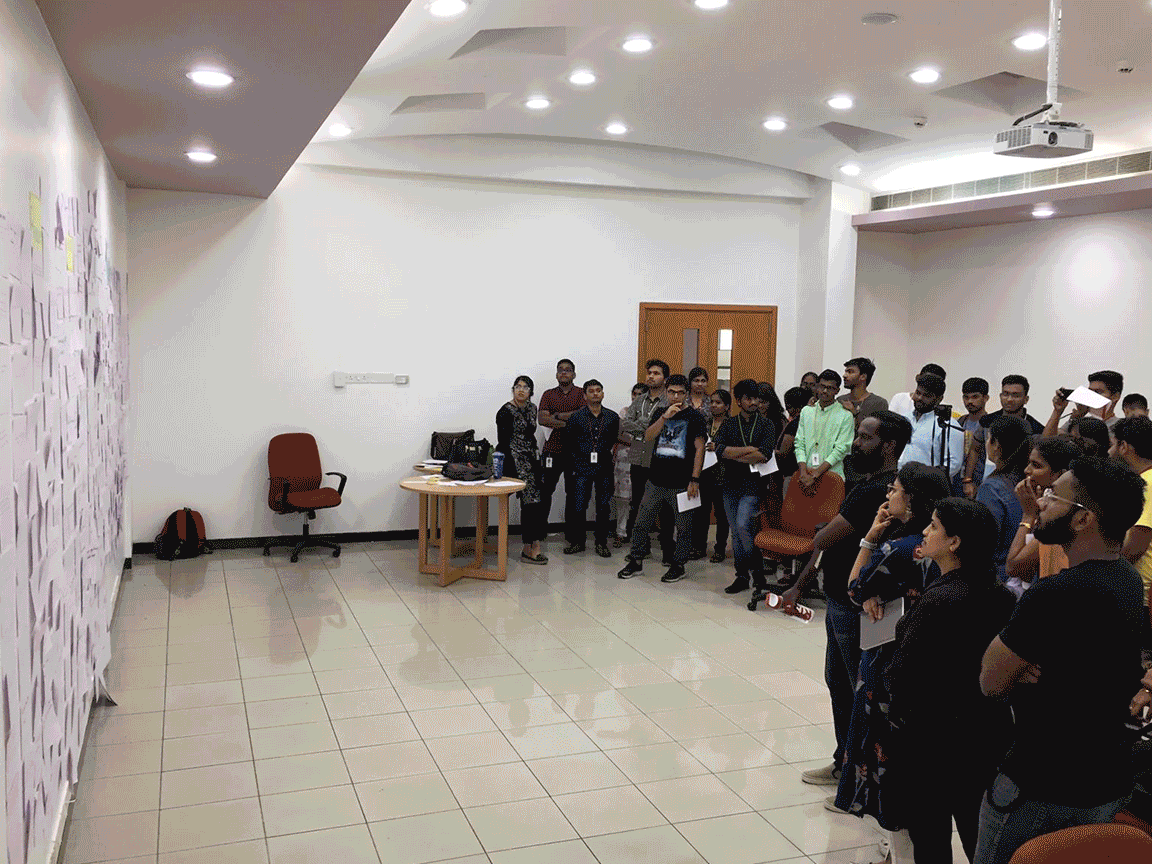
Images of the 4 and 8 week courses in Mysore India and Providence RI USA.


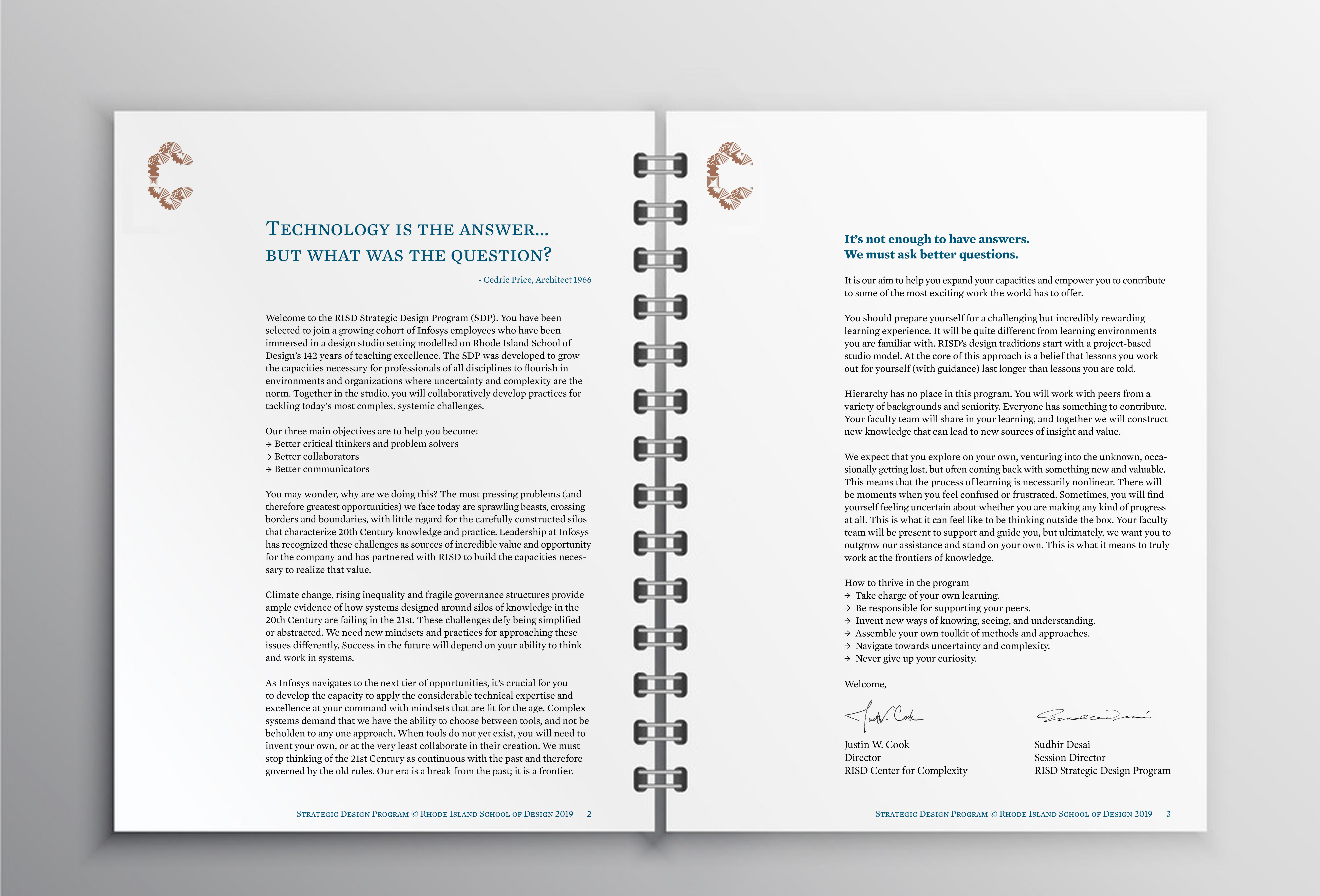

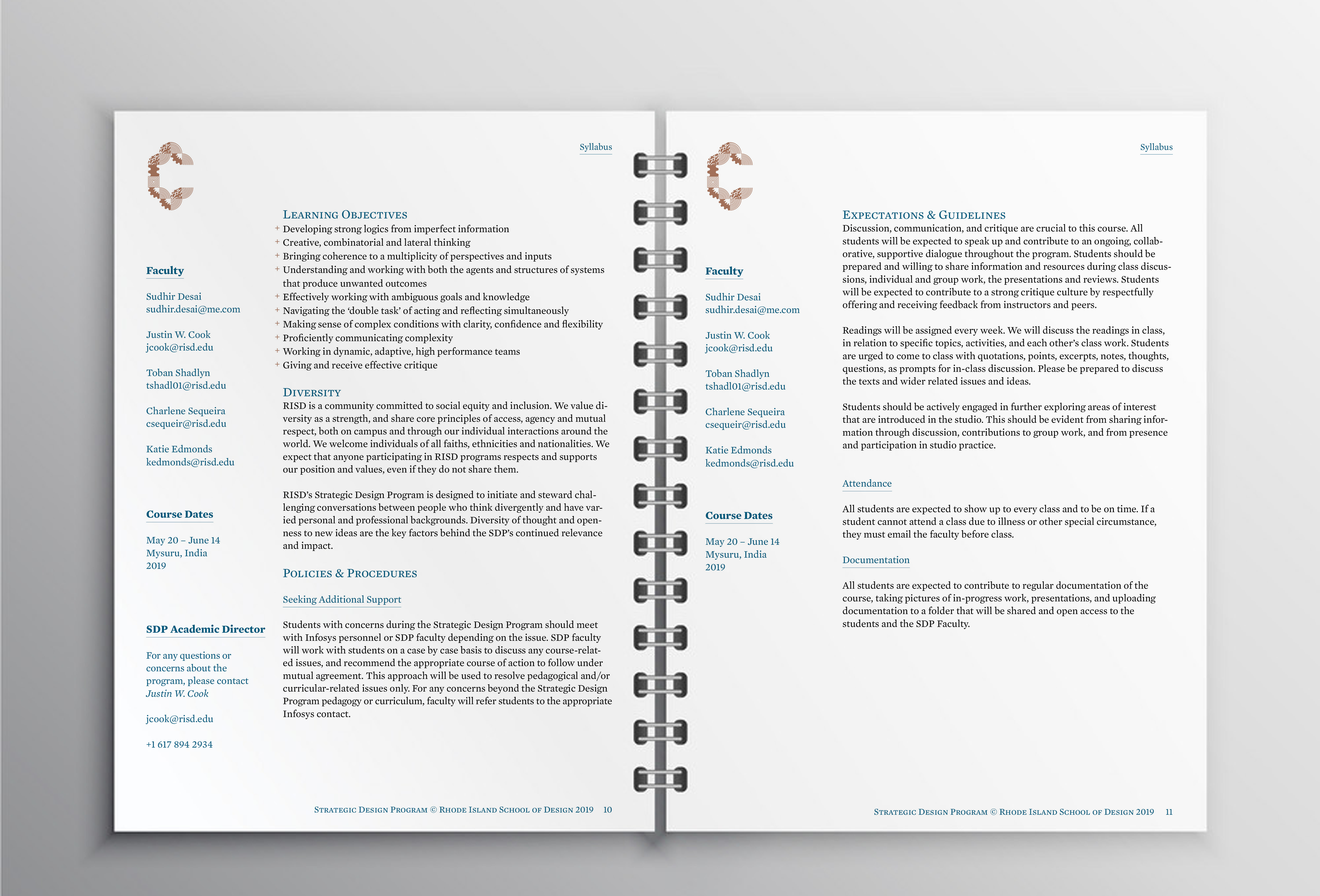


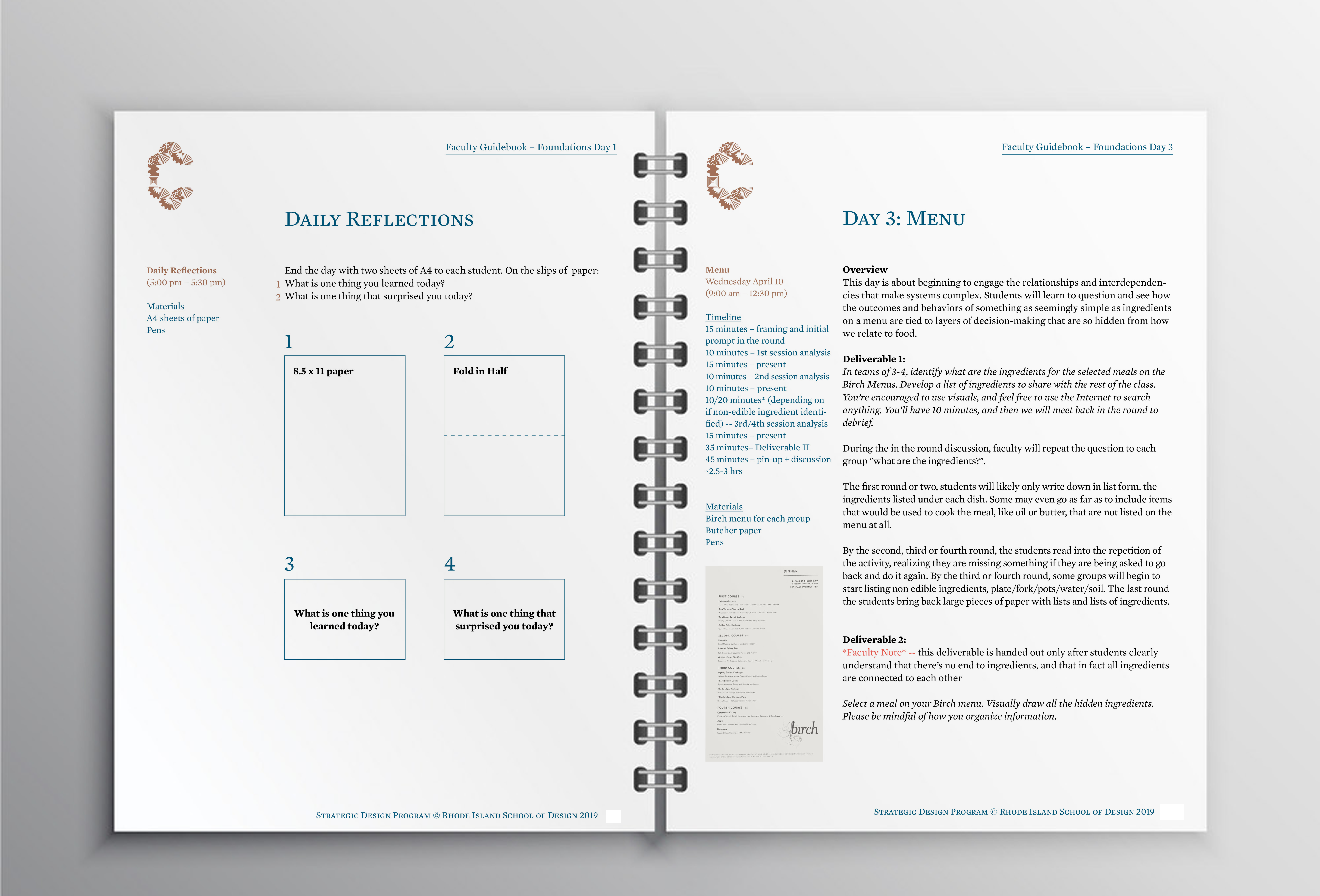


Course Architecture
Participants are guided through a week-long foundational sprint, then introduced to a design brief to which they respond through a series of iterative cycles of observation, interpretation, design speculation, prototyping, and critique.
These week-long engagements include field research and information analysis that advance to greater levels of complexity – from objects, to contexts, to invisible dynamic forces. In multidisciplinary teams, participants expand their ability to rapidly design and deliver formal presentations of their insights.
Facilitated by experts from across a spectrum of design practices, participants develop their own practice for generating and realizing strategic insight that expands value and opportunity with actionable clarity and precision.
These week-long engagements include field research and information analysis that advance to greater levels of complexity – from objects, to contexts, to invisible dynamic forces. In multidisciplinary teams, participants expand their ability to rapidly design and deliver formal presentations of their insights.
Facilitated by experts from across a spectrum of design practices, participants develop their own practice for generating and realizing strategic insight that expands value and opportunity with actionable clarity and precision.
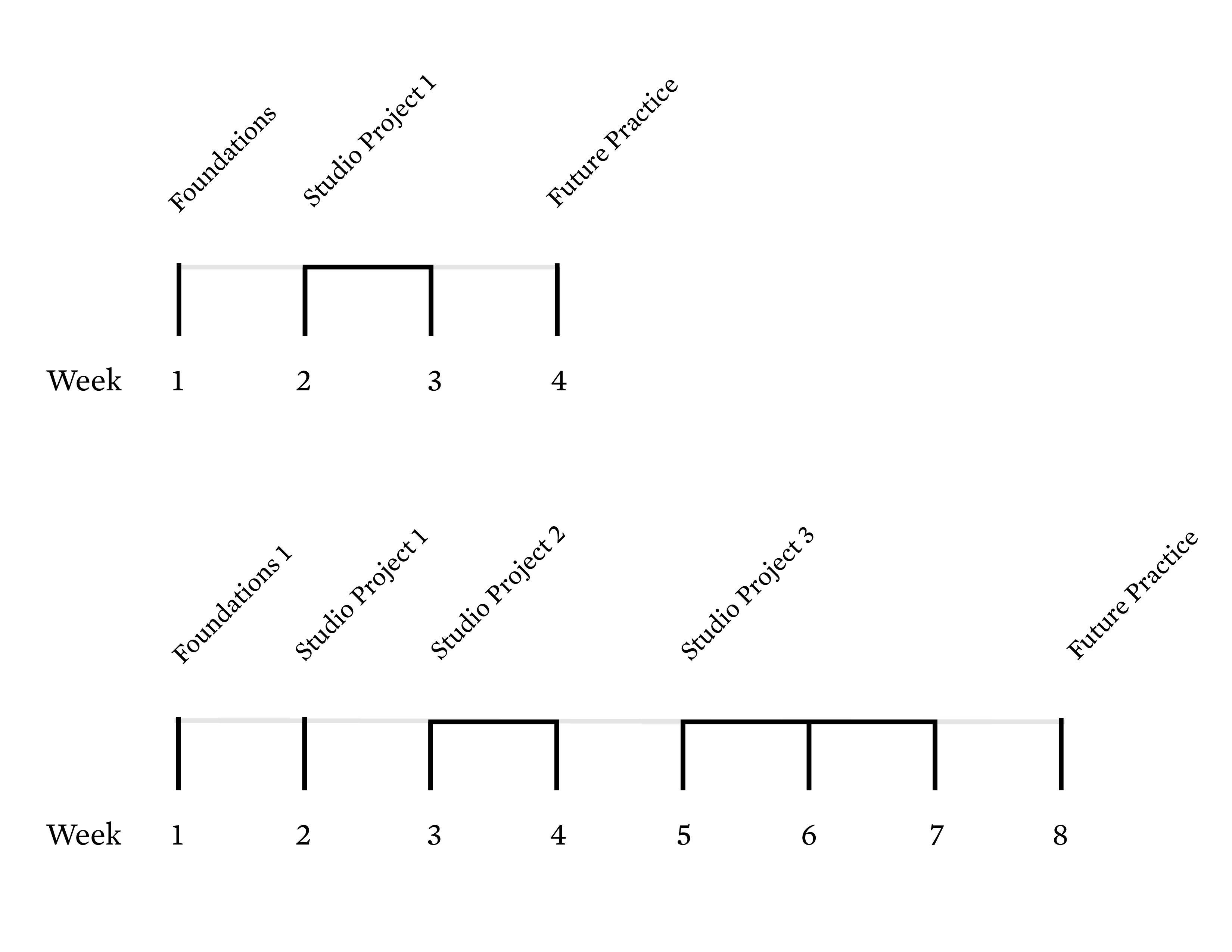
The program is designed with 3 main components.
1. Foundations
The purpose of Foundations is to develop curiosity, exploration, collective learning, rigor, questioning, and risk-taking. This intensive week of varied activities is purposely designed to get students out of their comfort zone, into a state of “unlearning”. The objective of this week is to develop students awareness to rigid behaviours and ways of thinking that have been set early on, and to open up their apertures. One way we do this is by “making the familiar strange”. This first week is crucial to setting the tone, pace, and expectations of the course.
2. Studio Projects
The SDP is a project-based studio model. At the core of this approach is a belief that lessons you work out for yourself (with guidance) last longer than lessons you are told. We are more interested in ensuring students leave the program with the capability to learn rather than become expert in any single particular topic or approach. To help ground this learning, we use real-world challenges as a basis for exploration through chosen studio topics and briefs.
Studio Topic: The theme or area of focus.
Studio Brief & Projects: A written brief related to the studio topic. The brief is written by faculty and provided to the students as a starting point for their work. During the course, students work on one or many projects (ranging from 1-3 weeks in length) in response to the brief(s) and related to the topic.
Through hands on and immersive projects, students have the opportunity to engage in a design process, not only once, but many times. They are able to experiment and hone their practice with each project, applying the learnings from one to the next. Each project becomes more challenging and complex requiring a critical and strategic mindset
3. Future Practice
This last piece of the program gives students the time to reflect on the mindsets and tools explored during the course and incorporate this into their developing practice. The focus is on adapting the learning objectives, studio modalities, and collaborative decision-making as they take these new learnings and skills into new environments.
1. Foundations
The purpose of Foundations is to develop curiosity, exploration, collective learning, rigor, questioning, and risk-taking. This intensive week of varied activities is purposely designed to get students out of their comfort zone, into a state of “unlearning”. The objective of this week is to develop students awareness to rigid behaviours and ways of thinking that have been set early on, and to open up their apertures. One way we do this is by “making the familiar strange”. This first week is crucial to setting the tone, pace, and expectations of the course.
2. Studio Projects
The SDP is a project-based studio model. At the core of this approach is a belief that lessons you work out for yourself (with guidance) last longer than lessons you are told. We are more interested in ensuring students leave the program with the capability to learn rather than become expert in any single particular topic or approach. To help ground this learning, we use real-world challenges as a basis for exploration through chosen studio topics and briefs.
Studio Topic: The theme or area of focus.
Studio Brief & Projects: A written brief related to the studio topic. The brief is written by faculty and provided to the students as a starting point for their work. During the course, students work on one or many projects (ranging from 1-3 weeks in length) in response to the brief(s) and related to the topic.
Through hands on and immersive projects, students have the opportunity to engage in a design process, not only once, but many times. They are able to experiment and hone their practice with each project, applying the learnings from one to the next. Each project becomes more challenging and complex requiring a critical and strategic mindset
3. Future Practice
This last piece of the program gives students the time to reflect on the mindsets and tools explored during the course and incorporate this into their developing practice. The focus is on adapting the learning objectives, studio modalities, and collaborative decision-making as they take these new learnings and skills into new environments.
Students creating a collective research wall (Mysore, India 2019).

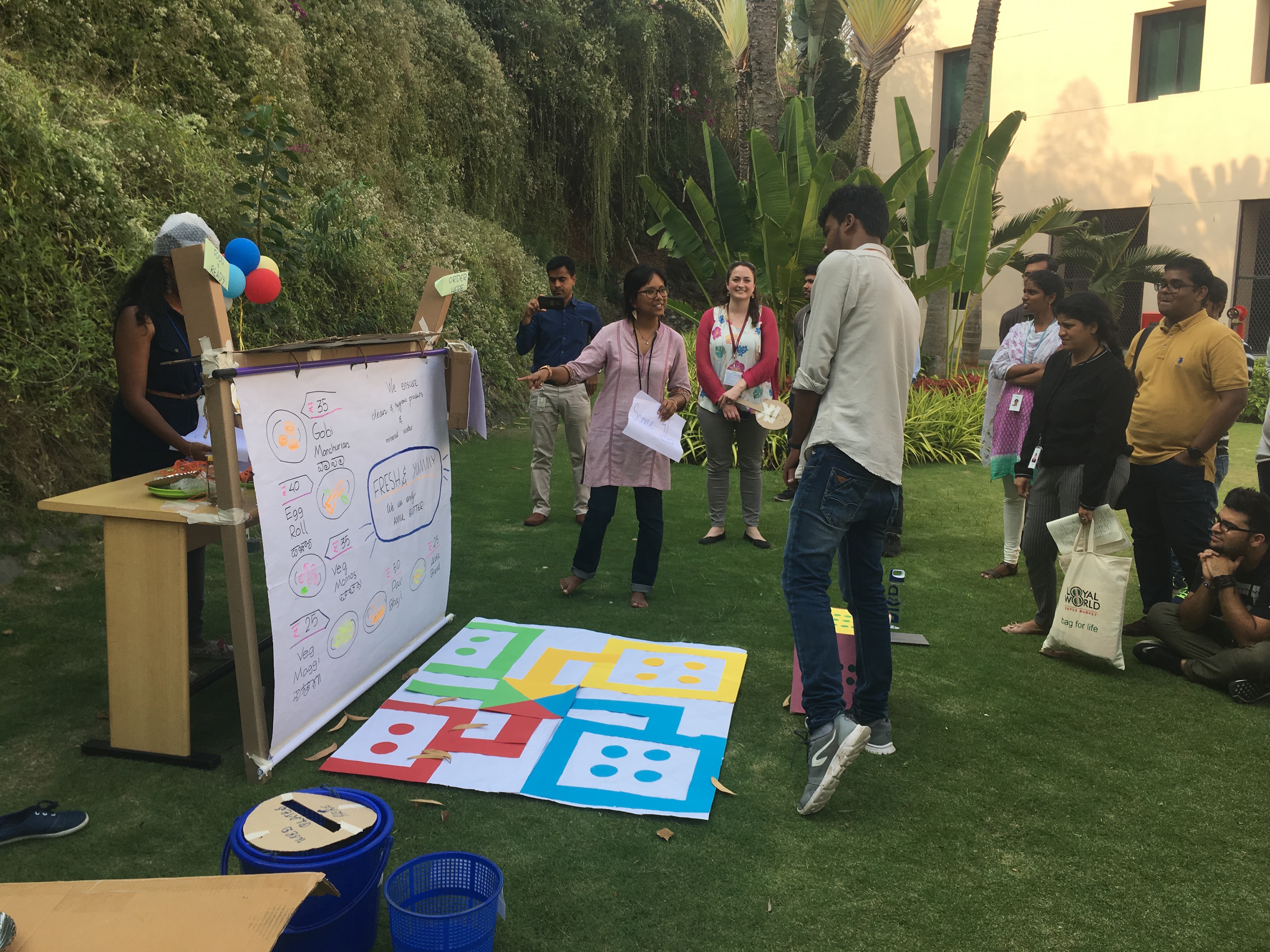
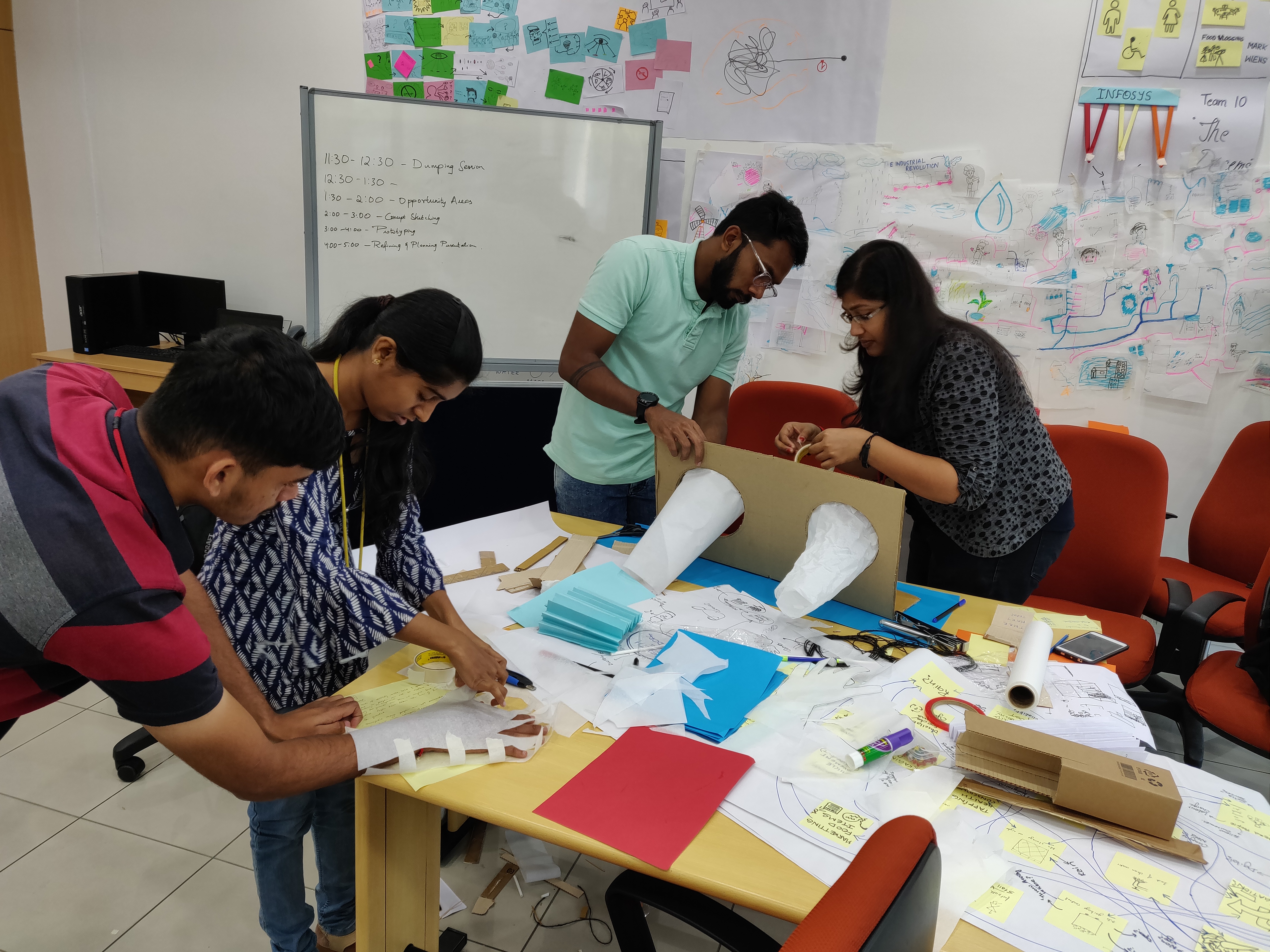
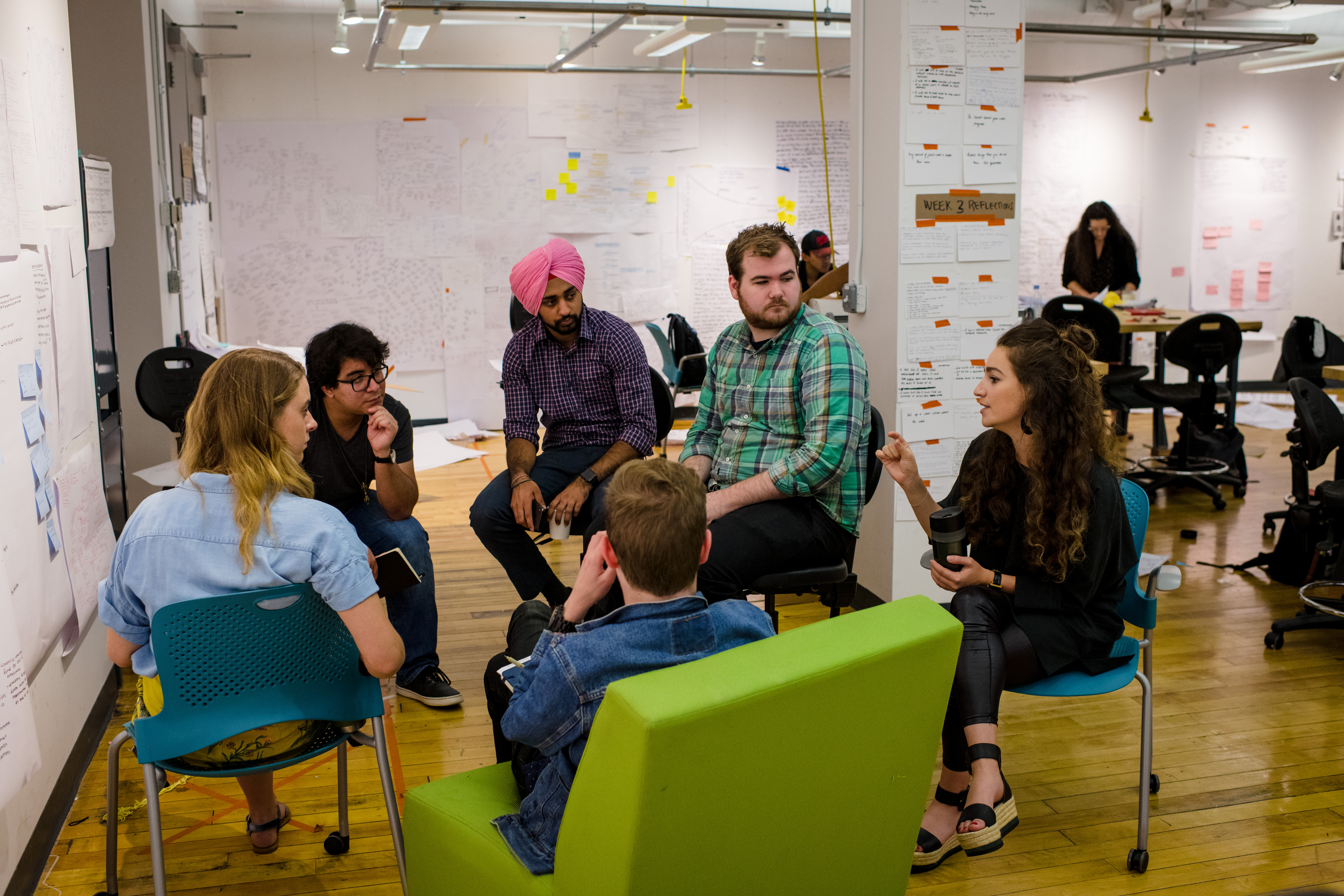
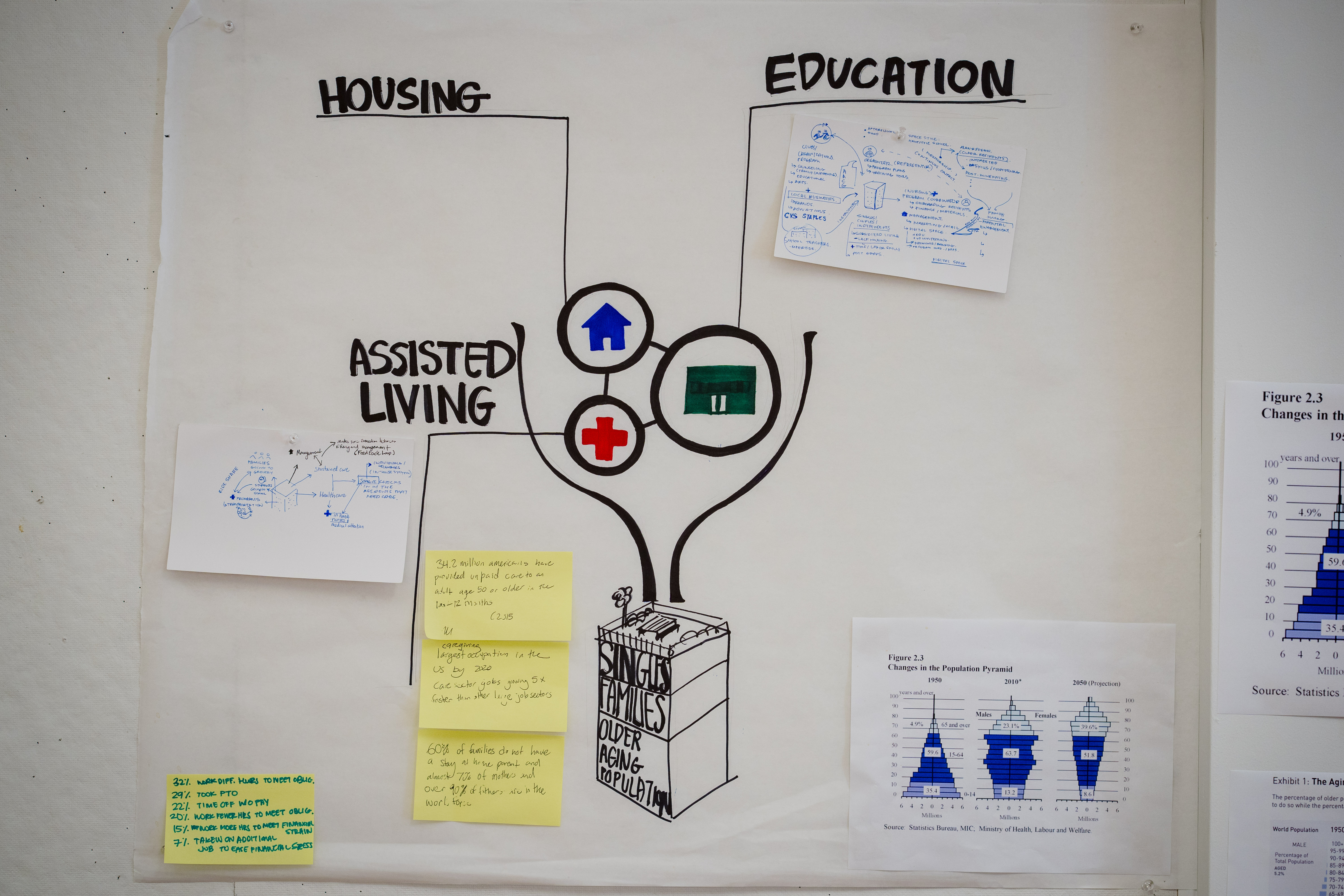

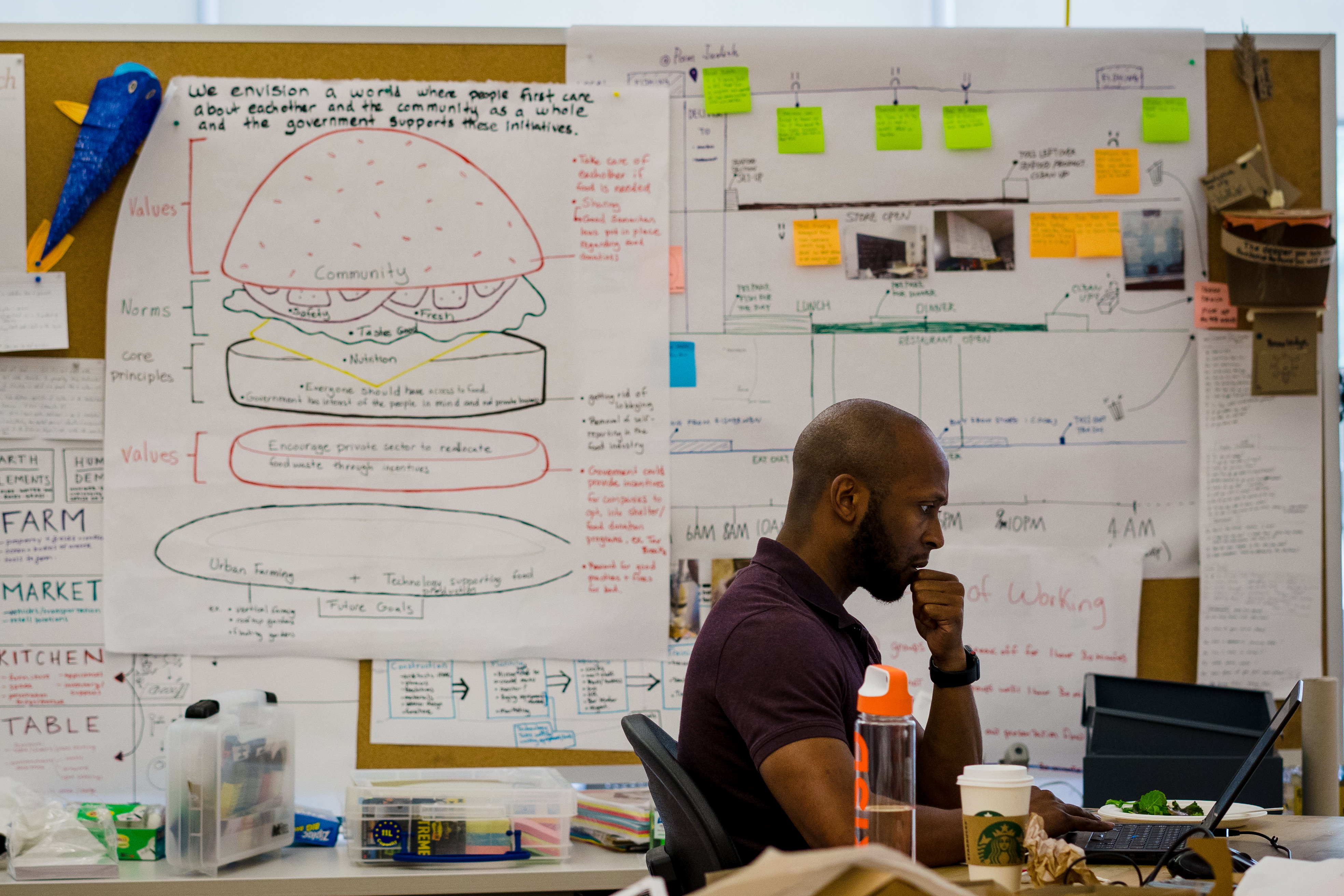

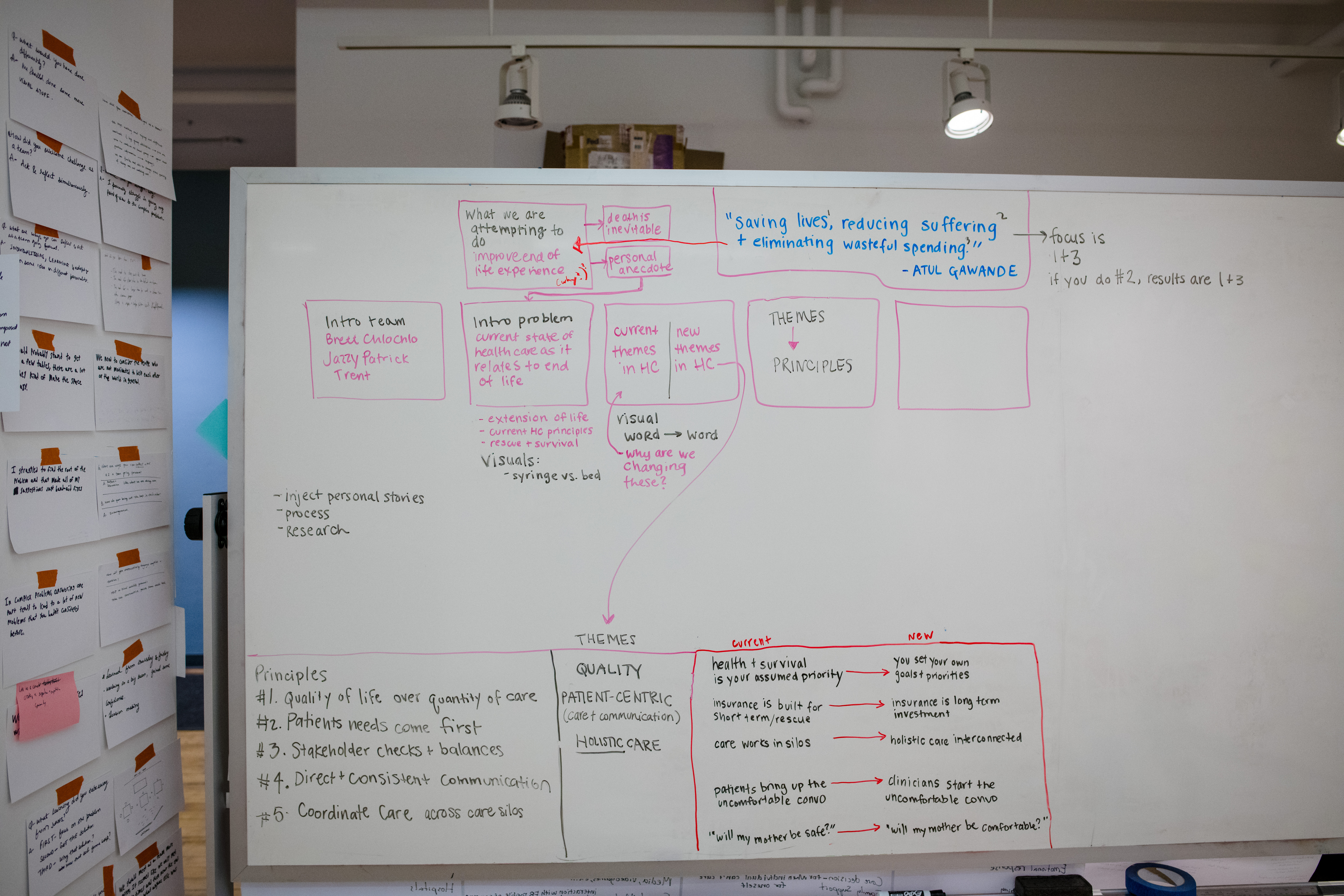
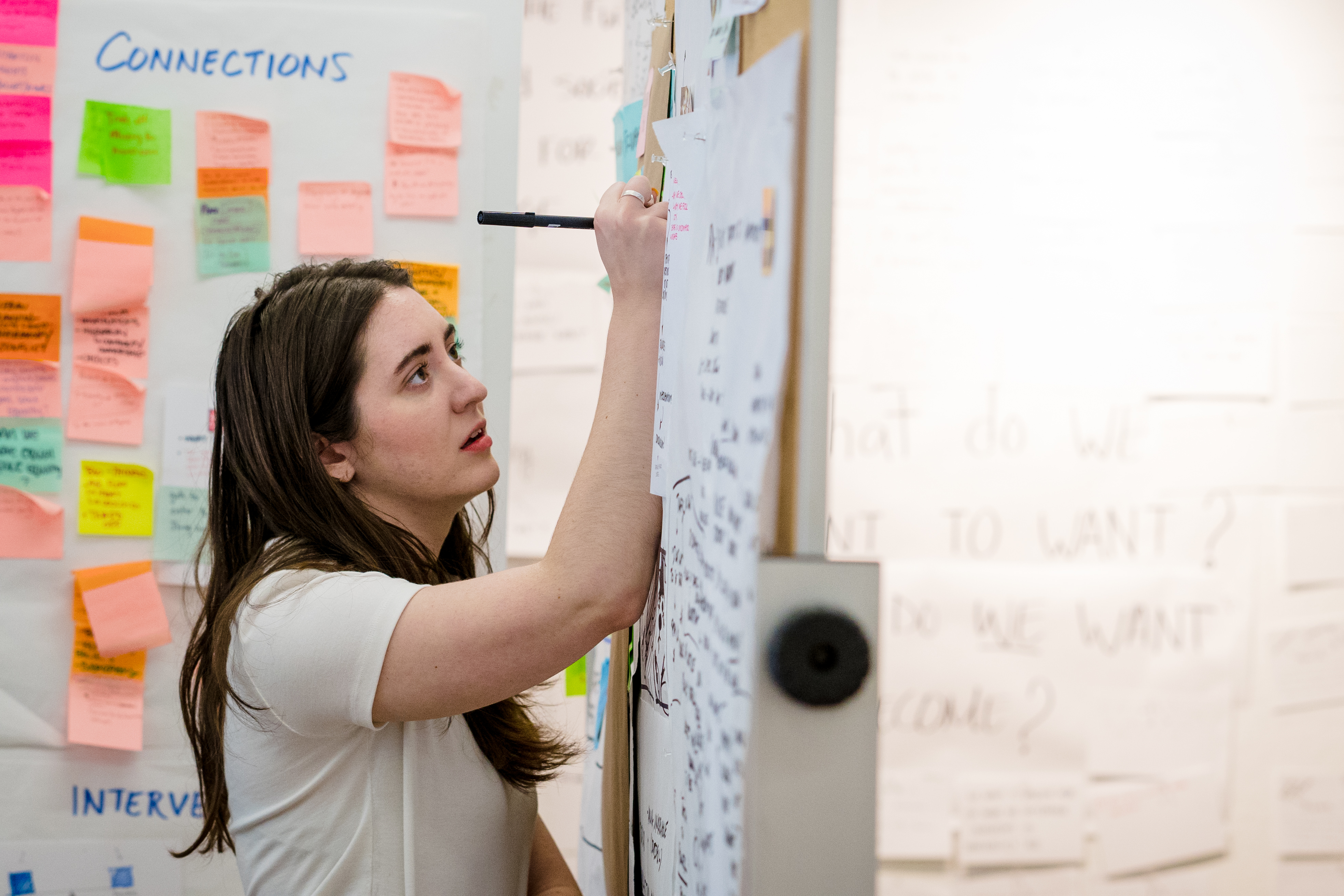

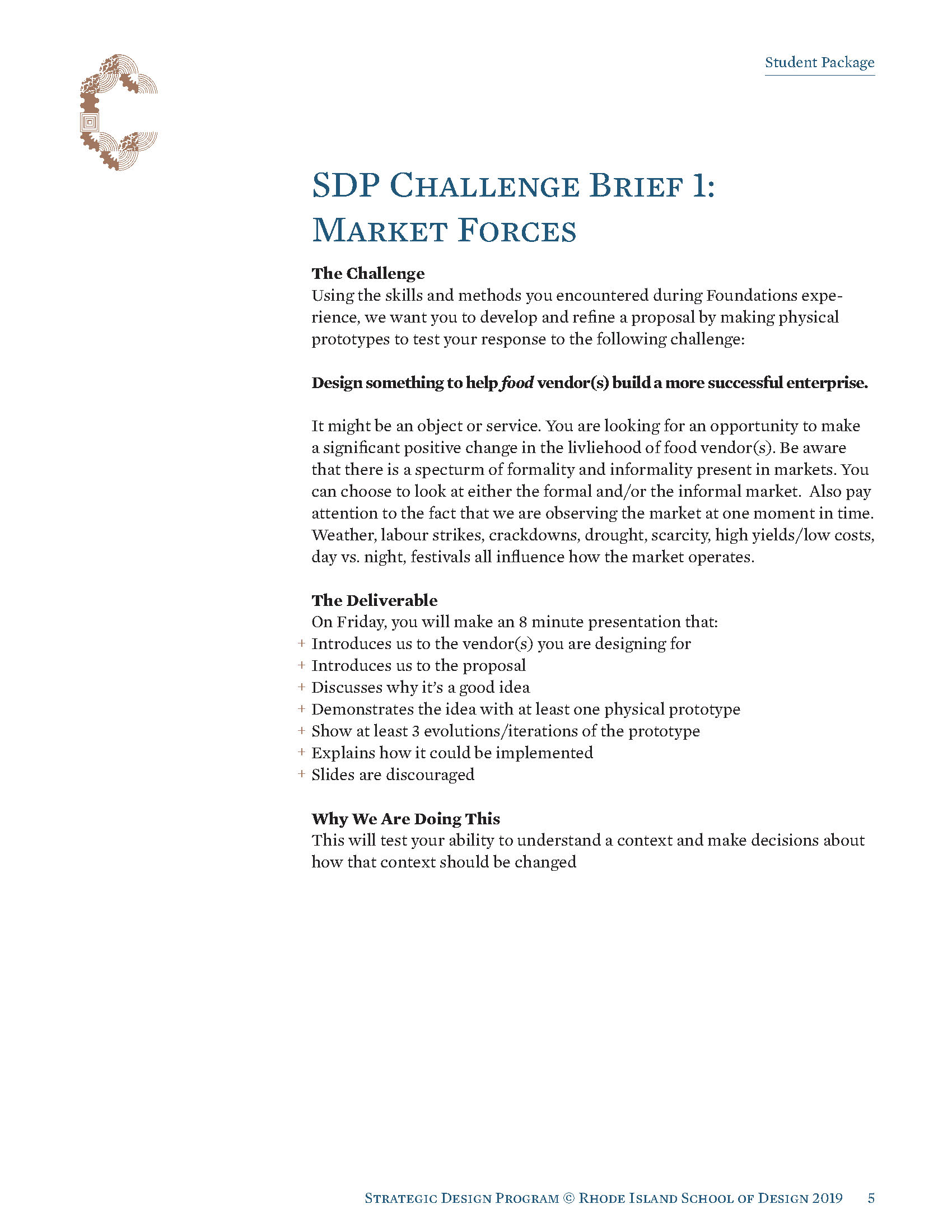
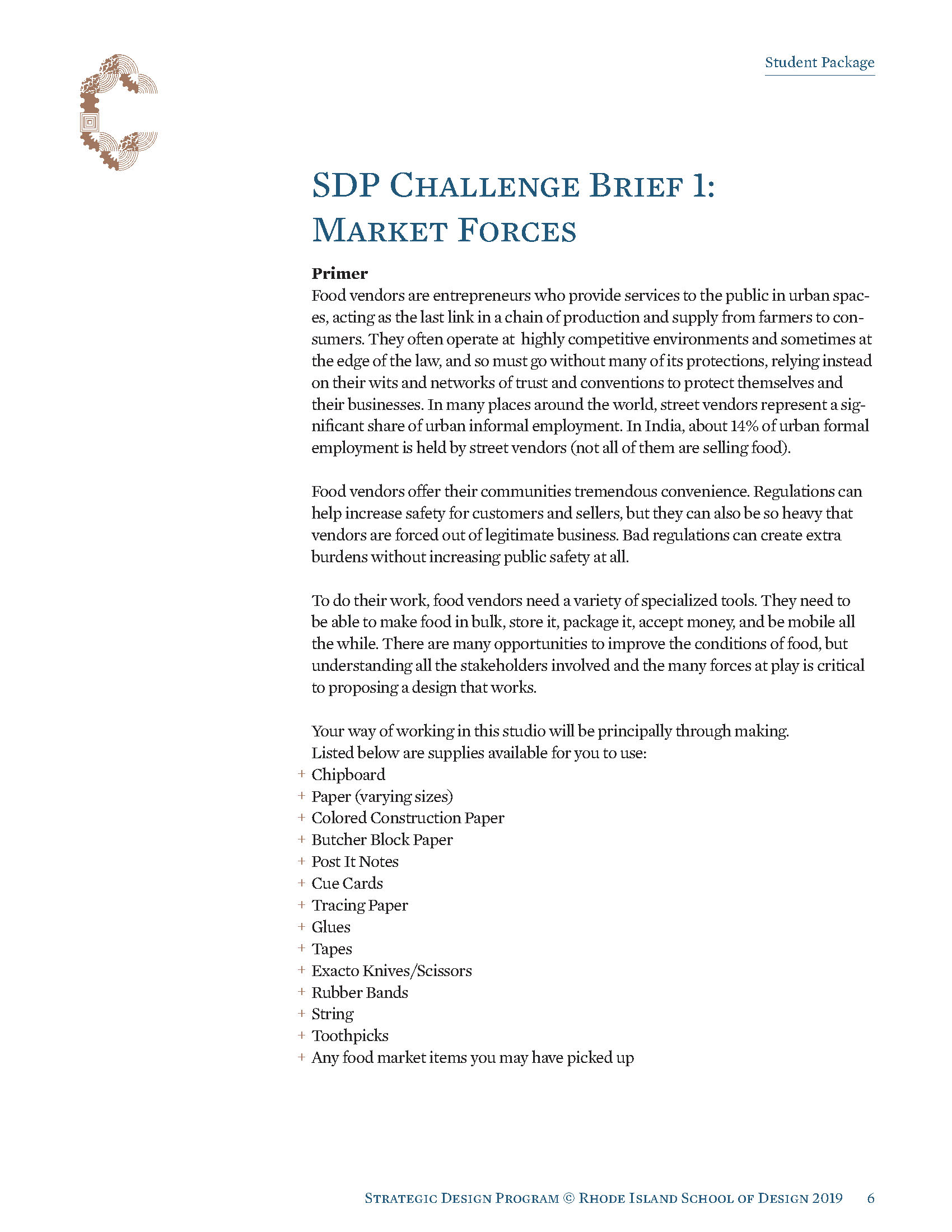
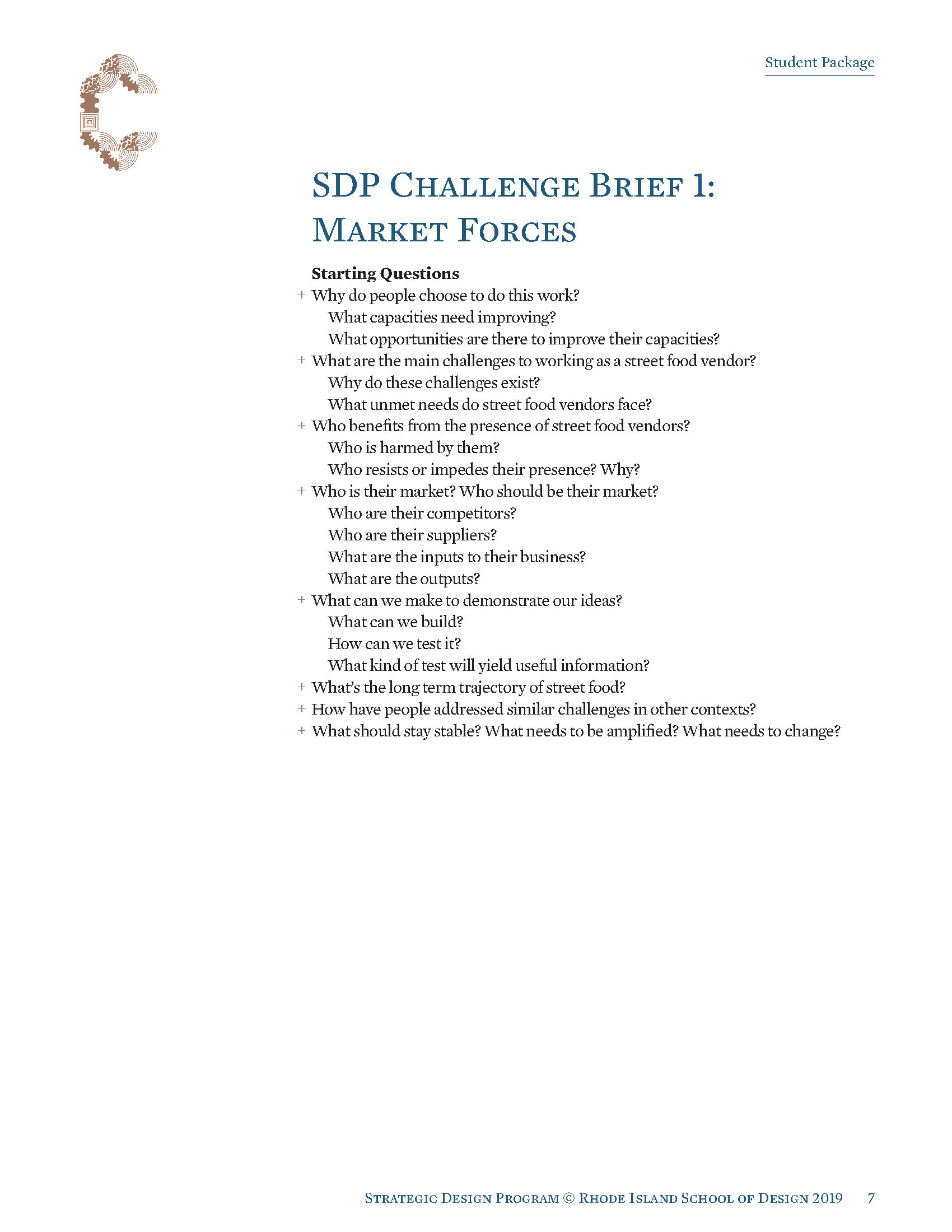

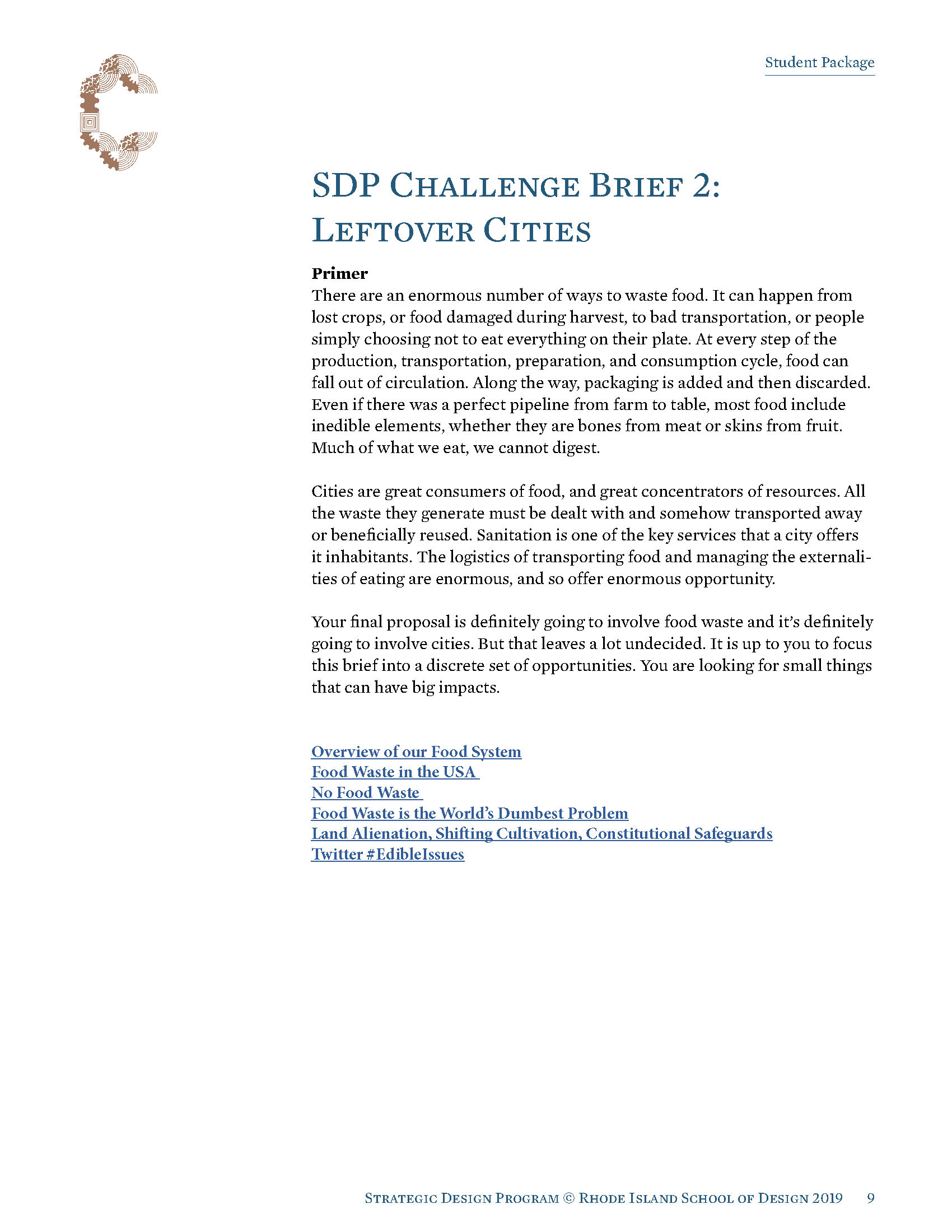
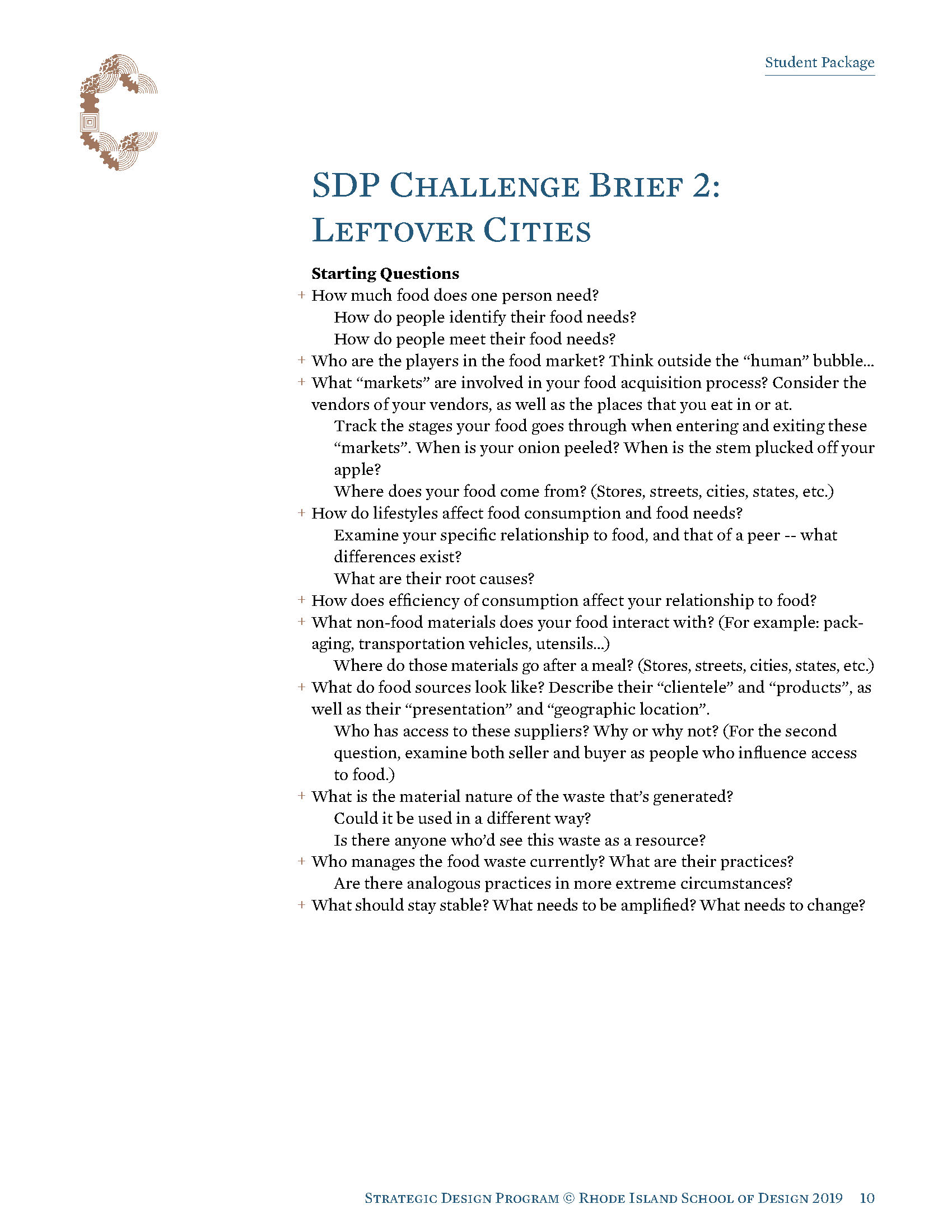
Example studio briefs from the Future of Food studio (2019).
Index